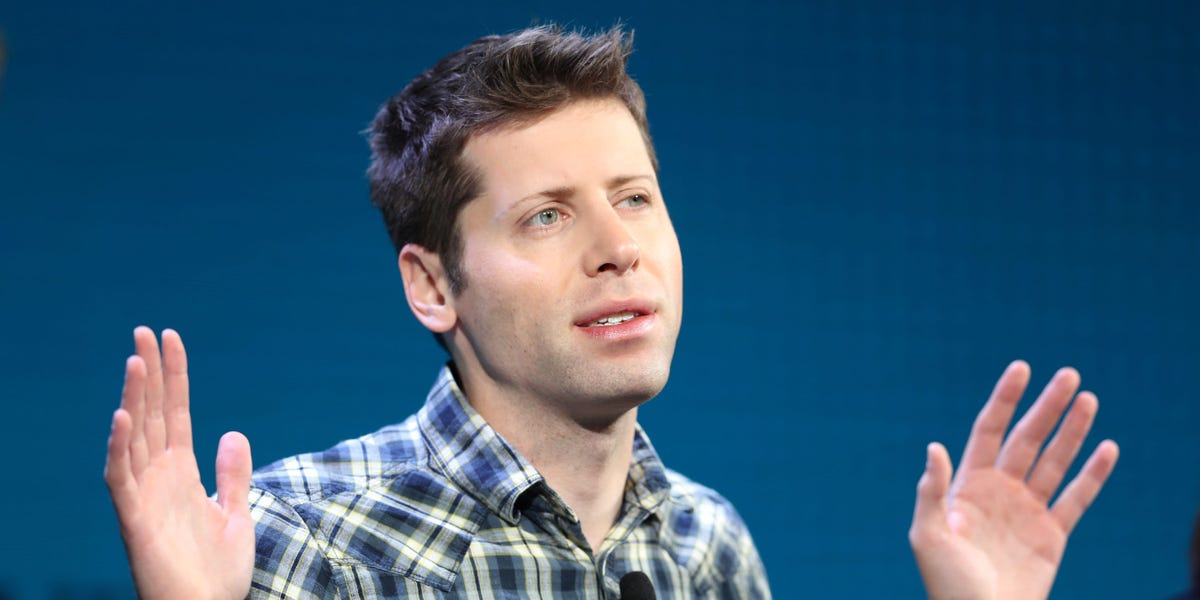Users of OpenAI’s GPT-4 are complaining that the AI model is performing worse lately. Industry insiders say a redesign of GPT-4 could be to blame.
Not the first time OpenAI has done this. DALLE2 used to be the best AI art program in the world. Then OpenAI decided that they didn’t want to get sued by celebrities, so they made it so that if a face came out that resembled a celebrity, it would be distorted. But every face kind of looks like someone famous. Ta da! Now DALLE2 can’t do faces.
Want a crane shot areal image of a teen couple in a corvette driving off into the sunset? Well, you are now banned for life from the DALLE2 service, because DALLE2 produced an image of a ‘shot teen’ and that violates it’s terms of service.
Dalle2 was always kind of shit tbh.
Dalle2 was great when it was free and stable diffusion didn’t exist. I don’t see the logic of: “Someone made a free version. Lets make the program worse and charge money for it!”
The only way in mind this dumbing down happens is by fumbling with the model. So that’s the one thing we can be sure: the AI is most definitely changed while publicly staying “ChatGPT 4”. I assume they are either using clipping or token limitations to split the server load but fucking up the result, or they are purposely dumbing it down to capitalise on it later by introducing other pay models like ppl already mentioned.
Either way they are shooting themselves in the foot because a bunch of ppl will unsubscribe either out of spite for the change or because it’s just not worth it anymore for them.
Removed by mod
I remember one time a guy was trying to add SDL (a programming library) to Visual Studio (code editor and IDE), and said that it wouldn’t link to a project no matter what he’s done. You can google how to do this in five minutes, with video tutorials and everything, it’s like a basic thing every programmer does in that IDE. Like 5 question threads later, turns out he was “following all ChatGPT steps” and they were all complete nonsense, just random functions of Visual Studio done with the filenames of SDL.
lmfao. Why haven’t most people figured out yet that chatgpt lies more often than not?
No, because their sales team and ceo are spending millions so that people don’t find that out.
Its not even suppost to tell the truith, we warped it into doing so. Why AI lies
Might be right but in my experience a lack of skill in conversing with AI is a much greater factor in determining it’s usefulness. It’s almost always going to defer to the user. It’s like when someone is dealing with tech support and they tell them to try turning it off and on again. If that really is the solution, and the user insists that it is not, CGPT is going to make something up just to appease the user’s request.
Users have to know that CGPT isn’t magic. How they behave affects how it behaves. Kind of like talking to actual people, which is what it’s essentially trying to simulate.
Some people have been saying that since the beginning while some haven’t noticed this “decline”. It seems very subjective.
Honestly as a daily user I think it’s a combination of it getting worse at understanding vague prompts and people bumbing up against edge cases more. I would suspect the former is due to things like prompt hardening but can only speculate, while the latter isn’t hard to imagine just from frequent use.
AI taking a running leap at enshittification.
You know how we have pre-bomb steel? We’ll have pre-GPT data sets.
lmao I was write back then :D
You mean "I was right* or “i wrote*”?
No no, he used to work as a wright. Built ships and shit.
Also the title of the attached post is lols: “Yes, ChatGPT became dumber and I 2 days ago I cancelled my subscription”
Beside upscale ai all other ai can collapse, burn and fuck right off
what is upacale AI?
AI used to upscale low resolution images
haha
Why?
A lot of artists and writers are against generative AIs due to how it used their works en masse as training materials without permission, compensation or even crediting, and now prospective clients and executives are using these AIs rather than hiring them.
I think I’d place breakthrough medical applications above upscaling but that’s just me.
That wont happen. AI everywhere is inevitable.
It could even tell me what 1312 means, after I told it it was a number substitution cypher
deleted by creator
Just like most people after they achieve success.
I don’t use it much but I’ve been facing more “I can’t” scenarios with OpenAI lately, could be unrelated though.
The model has become inbred because it’s now impossible to scrape the web without AI content getting ingested, which is full of “hallucinations” and other weird artifacts. The last opportunity to get “uncontaminated” training data was sometime in mid 2022.
Not to say that it’s causing this particular problem, but this issue will emerge eventually. Garbage in = garbage out. Eventually GPT-19 will grow a mighty Habsburg chin.
I suspect future models are going to have to put some more focus on learning using techniques more like what humans use, and on cognition.
Like, compared to a human these language models need very large quantities of text input. When humans are first learning language they get lots of visual input along with language input, and can test their understanding with trial-and-error feedback from other intelligent actors. I wonder if perhaps those factors greatly increase the rate at which understanding develops.
Also, humans tend to cogitate on inputs while ingesting them during learning. So if the information in new inputs disagrees with current understanding, those inputs are less likely to affect current understanding (there’s a whole ‘how to change your mind’ thing here that is necessary for people to use, but if we’re training a model on curated data that’s probably less important for early model training).
I don’t know details of how model training works, but it would be interesting to know if anyone is using a progressive learning technique where the model that is being trained is used to judge new training data before it is used as a training input to update the model’s weights. That would be kind of like how children learn by starting with very simple words and syntax and building up conceptual understanding gradually. I’d assume so, since it’s an obvious idea, but I haven’t heard about it.
deleted by creator
Are we sure they aren’t just becoming lazier and dumber by using it?








